Search titles
Displaying results 61 to 70 of 223.

Indigenous Mobilities »
Across and Beyond the Antipodes
Edited by: Rachel Standfield
Publication date: June 2018
This edited collection focuses on Aboriginal and Māori travel in colonial contexts. Authors in this collection examine the ways that Indigenous people moved and their motivations for doing so. Chapters consider the cultural aspects of travel for Indigenous communities on both sides of the Tasman. Contributors examine Indigenous purposes for mobility, including for community and individual economic wellbeing, to meet other Indigenous or non-Indigenous peoples and experience different cultures, and to gather knowledge or experience, or to escape from colonial intrusion.
‘This volume is the first to take up three challenges in histories of Indigenous mobilities. First, it analyses both mobility and emplacement. Challenging stereotypes of Indigenous people as either fixed or mobile, chapters deconstruct issues with ramifications for contemporary politics and analyses of Indigenous society and of rural and national histories. As such, it is a welcome intervention in a wide range of urgent issues. Second, by examining Indigenous peoples in both Australia and New Zealand, this volume is an innovative step in removing the artificial divisions that have arisen from “national” histories. Third, the collection connects the experiences of colonised Indigenous peoples with those of their colonisers, shifting the long-held stereotypes of Indigenous powerlessness. Chapters then convincingly demonstrate the agency of colonised peoples in shaping the actions and the mobility itself of the colonisers.
While the volume overall is aimed at opening up new research questions, and so invites later and even more innovative work, this volume will stand as an important guide to the directions such future work might take.’
— Heather Goodall, Professor Emerita, UTS
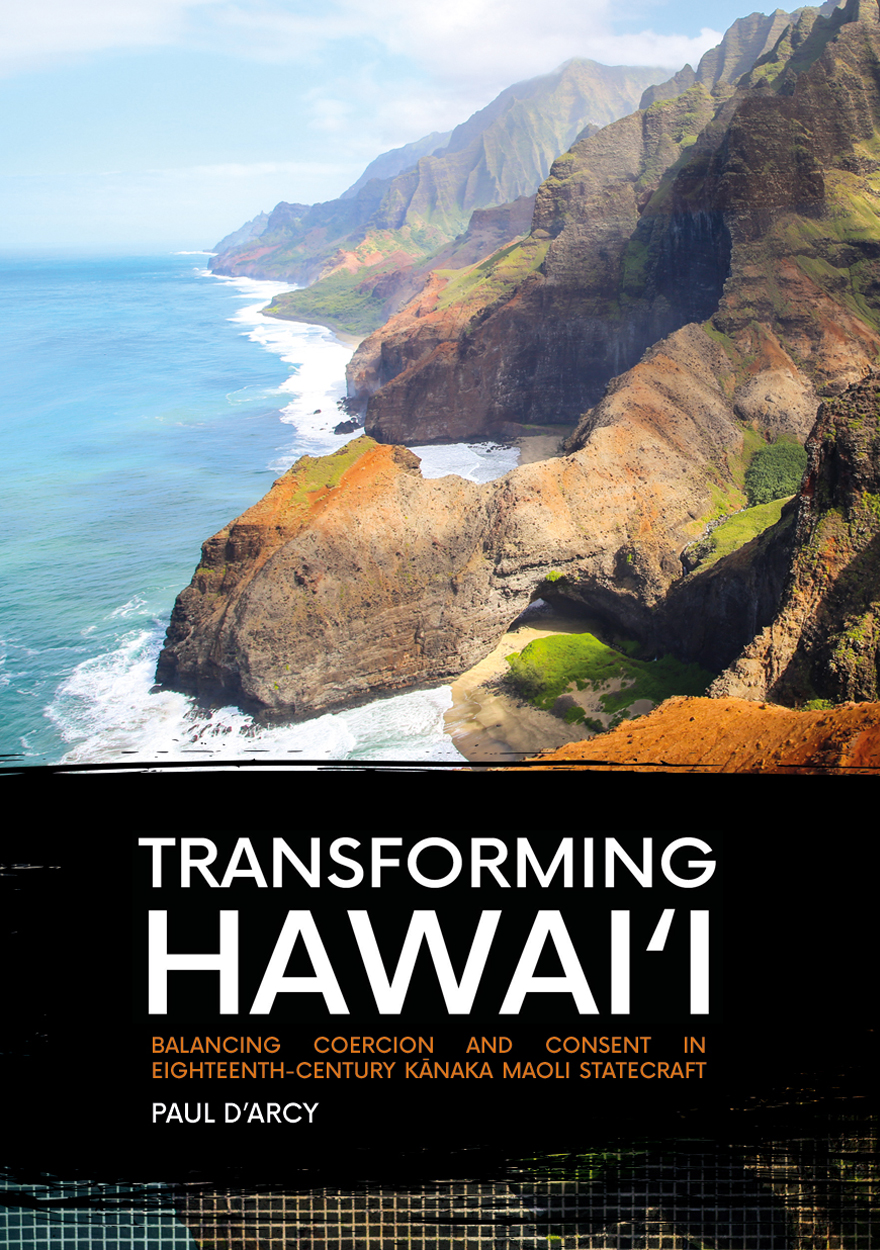
Transforming Hawai‘i »
Balancing Coercion and Consent in Eighteenth-Century Kānaka Maoli Statecraft
Authored by: Paul D’Arcy
Publication date: June 2018
This study examines the role of coercion in the unification of the Hawaiian Islands by Kamehameha I between 1782 and 1812 at a time of increasing European contact. Three interrelated themes in Hawaiian political evolution are examined: the balance between coercion and consent; the balance between general structural trends and specific individual styles of leadership and historical events; and the balance between indigenous and European factors. The resulting synthesis is a radical reinterpretation of Hawaiian warfare that treats it as an evolving process heavily imbued with cultural meaning. Hawaiian history is also shown to be characterised by fluid changing circumstances, including crucial turning points when options were adopted that took elements of Hawaiian society on paths of development that proved decisive for political unification. These watershed moments were neither inevitable nor predictable. Perhaps the greatest omission in the standard discourse on the political evolution of Hawaiian society is the almost total exclusion of modern indigenous Hawaiian scholarship on this topic. Modern historians from the Hawai‘inuiākea School of Hawaiian Knowledge at the University of Hawai‘i at Mānoa argue that political leadership and socioeconomic organisation were much more concensus-based than is usually allowed for. Above all, this study finds modern indigenous Hawaiian studies a much better fit with the historical evidence than more conventional scholarship.

Popular Music, Stars and Stardom »
Publication date: June 2018
A popular fascination with fame and stardom has existed in Western culture since the late eighteenth century; a fascination that, in the twenty‑first century, reaches into almost every facet of public life. The pervasive nature of stardom in modern society demands study from the perspectives of a range of distinct but thematically connected disciplines. The exploration of intersections between broader considerations of stardom and the discourses of popular music studies is the genesis for this volume. The chapters collected here demonstrate the variety of work currently being undertaken in stardom studies by scholars in Australia. The contributions range from biographical considerations of the stars of popular music, contributions to critical discourses of stardom in the industry more broadly, and the various ways in which the use of astronomical metaphors, in both cultural commentary and academic discourse, demonstrate notions of stardom firmly embedded in popular music thought. Not only do these chapters represent a range of perspectives on popular music, stars and stardom, they provide eloquent and innovative contributions to the developing discourse on stardom in popular music.
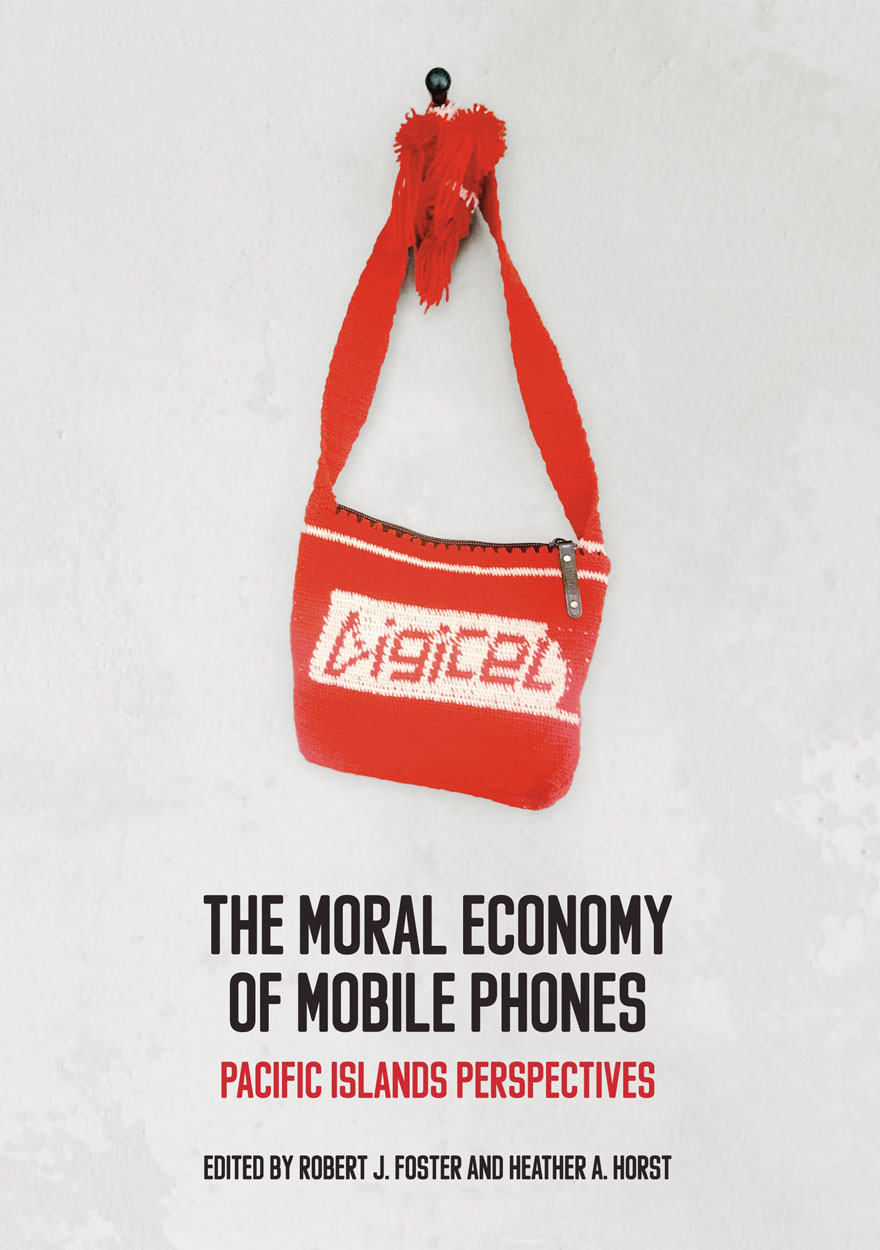
The Moral Economy of Mobile Phones »
Pacific Islands Perspectives
Edited by: Robert J. Foster, Heather A. Horst
Publication date: May 2018
The moral economy of mobile phones implies a field of shifting relations among consumers, companies and state actors, all of whom have their own ideas about what is good, fair and just. These ideas inform the ways in which, for example, consumers acquire and use mobile phones; companies promote and sell voice, SMS and data subscriptions; and state actors regulate both everyday use of mobile phones and market activity around mobile phones. Ambivalence and disagreement about who owes what to whom is thus an integral feature of the moral economy of mobile phones. This volume identifies and evaluates the stakes at play in the moral economy of mobile phones. The six main chapters consider ethnographic cases from Papua New Guinea, Fiji and Vanuatu. The volume also includes a brief introduction with background information on the recent ‘digital revolution’ in these countries and two closing commentaries that reflect on the significance of the chapters for our understanding of global capitalism and the contemporary Pacific.
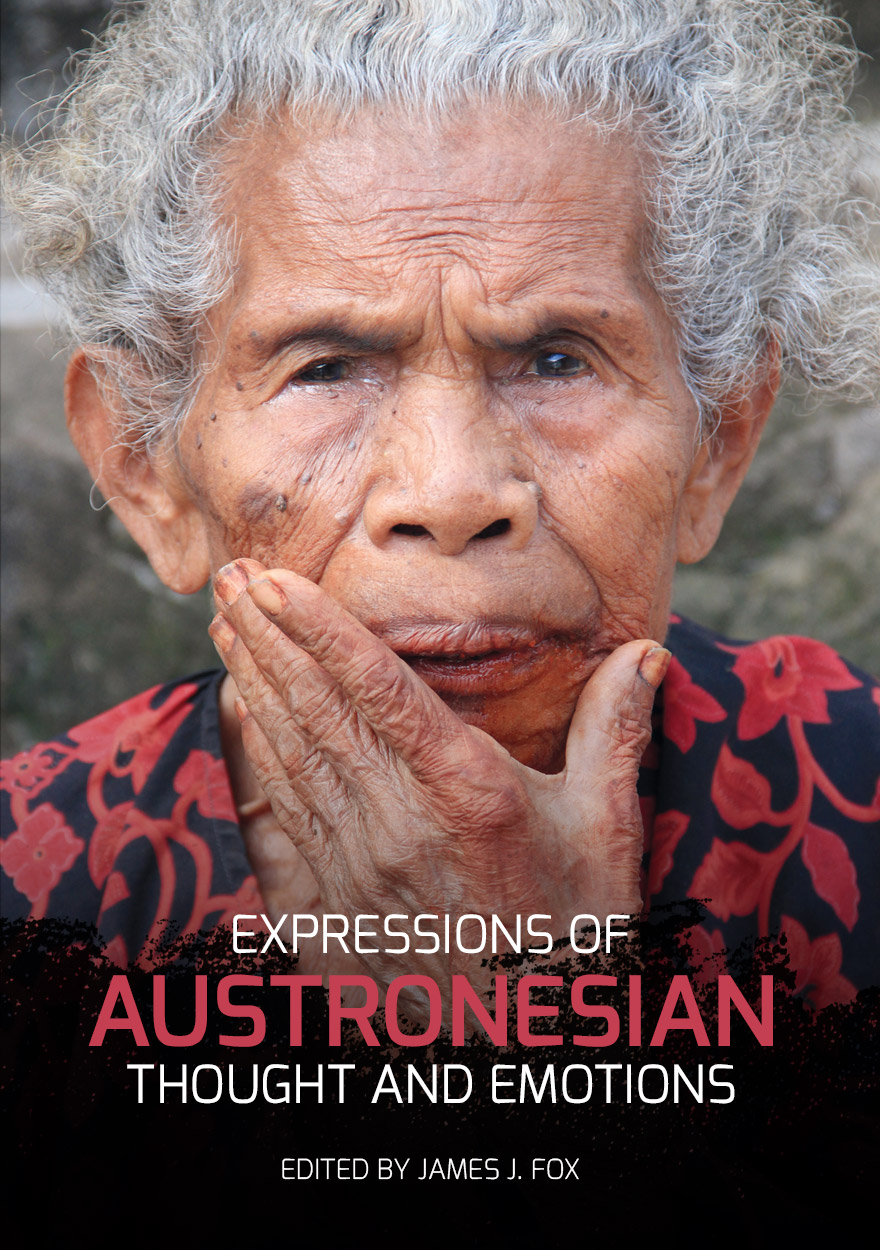
Expressions of Austronesian Thought and Emotions »
Edited by: James J. Fox
Publication date: April 2018
This collection of papers is the seventh volume in the Comparative Austronesian series. The papers in this volume focus on societies from Sumatra to Melanesia and examine the expression and patterning of Austronesian thought and emotions.

The Quest for the Good Life in Precarious Times »
Ethnographic Perspectives on the Domestic Moral Economy
Edited by: Chris Gregory, Jon Altman
Publication date: April 2018
The study of the quest for the good life and the morality and value it presupposes is not new. To the contrary, this is an ancient issue; its intellectual history can be traced back to Aristotle. In anthropology, the study of morality and value has always been a central concern, despite the claim of some scholars that the recent upsurge of interest in these issues is new. What is novel is how scholars in many disciplines are posing the value question in new ways. The global economic alignments of the present pose many political, moral and theoretical questions, but the central issue the essays in this collection address is: how do relatively poor people of the Australia–Pacific region survive in current precarious times? In looking to answer this question, contributors directly engage the values and concepts of their interlocutors. At a time when understanding local implications of global processes is taking on new urgency, these essays bring finely honed anthropological perspectives to matters of universal human concern—they offer radical empirical critique based on intensive fieldwork that will be of great interest to those seeking to comprehend the bigger picture.

Prosperity »
Edited by: Jane Golley, Linda Jaivin
Publication date: April 2018
A ‘moderately prosperous society’ with no Chinese individual left behind—that’s the vision for China set out by Chinese President Xi Jinping in a number of important speeches in 2017. ‘Moderate’ prosperity may seem like a modest goal for a country with more billionaires (609 at last count) than the US. But the ‘China Story’ is a complex one. The China Story Yearbook 2017: Prosperity surveys the important events, pronouncements, and personalities that defined 2017. It also presents a range of perspectives, from the global to the individual, the official to the unofficial, from mainland China to Hong Kong and Taiwan. Together, the stories present a richly textured portrait of a nation that in just forty years has lifted itself from universal poverty to (unequally distributed) wealth, changing itself and the world in the process.

Hybridity on the Ground in Peacebuilding and Development »
Critical Conversations
Publication date: March 2018
Hybridity on the Ground in Peacebuilding and Development engages with the possibilities and pitfalls of the increasingly popular notion of hybridity. The hybridity concept has been embraced by scholars and practitioners in response to the social and institutional complexities of peacebuilding and development practice. In particular, the concept appears well-suited to making sense of the mutually constitutive outcomes of processes of interaction between diverse norms, institutions, actors and discourses in the context of contemporary peacebuilding and development engagements. At the same time, it has been criticised from a variety of perspectives for overlooking critical questions of history, power and scale. The authors in this interdisciplinary collection draw on their in‑depth knowledge of peacebuilding and development contexts in different parts of Asia, the Pacific and Africa to examine the messy and dynamic realities of hybridity ‘on the ground’. By critically exploring the power dynamics, and the diverse actors, ideas, practices and sites that shape hybrid peacebuilding and development across time and space, this book offers fresh insights to hybridity debates that will be of interest to both scholars and practitioners.
‘Hybridity has become an influential idea in peacebuilding and this volume will undoubtedly become the most influential collection on the idea. Nuance and sophistication characterises this engagement with hybridity.’
— Professor John Braithwaite
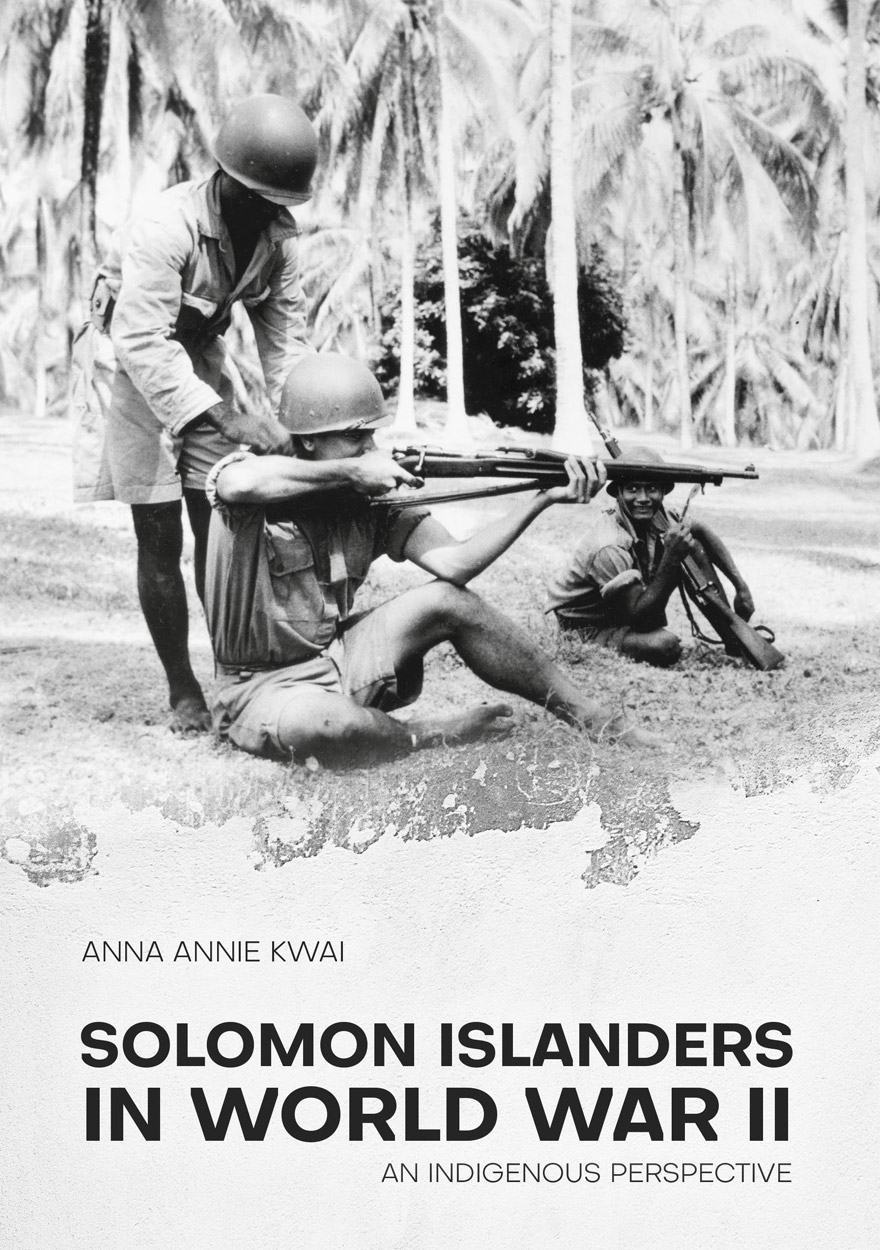
Solomon Islanders in World War II »
An Indigenous Perspective
Authored by: Anna Annie Kwai
Publication date: December 2017
The Solomon Islands Campaign of World War II has been the subject of many published historical accounts. Most of these accounts present an ‘outsider’ perspective with limited reference to the contribution of indigenous Solomon Islanders as coastwatchers, scouts, carriers and labourers under the Royal Australian Navy and other Allied military units. Where islanders are mentioned, they are represented as ‘loyal’ helpers. The nature of local contributions in the war and their impact on islander perceptions are more complex than has been represented in these outsiders’ perspectives. Islander encounters with white American troops enabled self-awareness of racial relationships and inequality under the colonial administration, which sparked struggles towards recognition and political autonomy that emerged in parts of the British Solomon Islands Protectorate in the postwar period. Exploitation of postwar military infrastructure by the colonial administration laid the foundation for later sociopolitical upheaval experienced by the country. In the aftermath of the 1998 crisis, the supposed unity and pride that prevailed among islanders during the war has been seen as an avenue whereby different ethnic identities can be unified. This national unification process entailed the construction of the ‘Pride of our Nation’ monument that aims to restore the pride and identity of Solomon Islanders.
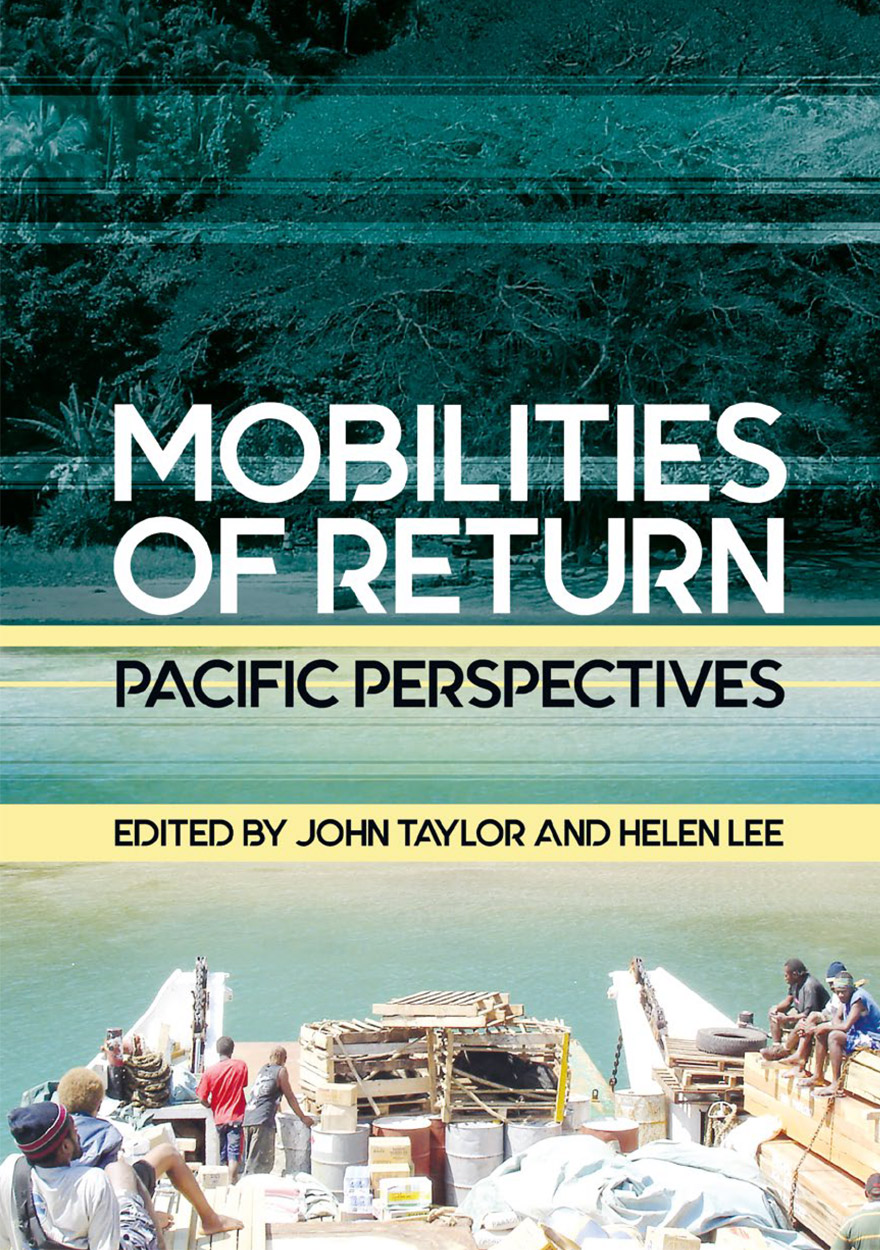
Mobilities of Return »
Pacific Perspectives
Edited by: John Taylor, Helen Lee
Publication date: December 2017
In recent decades, the term ‘mobility’ has emerged as a defining paradigm within the humanities. For scholars engaged in the multidisciplinary topics and perspectives now often embraced by the term Pacific Studies, it has been a much more longstanding and persistent concern. Even so, specific questions regarding ‘mobilities of return’—that is, the movement of people ‘back’ to places that are designated, however ambiguously or ambivalently, as ‘home’—have tended to take a back seat within more recent discussions of mobility, transnationalism and migration.
This volume situates return mobility as a starting point for understanding the broader context and experience of human mobility, community and identity in the Pacific region and beyond. Through diverse case studies spanning the Pacific region, it demonstrates the extent to which the prospect and practice of returning home, or of navigating returns between multiple homes, is a central rather than peripheral component of contemporary Pacific Islander mobilities and identities everywhere.



